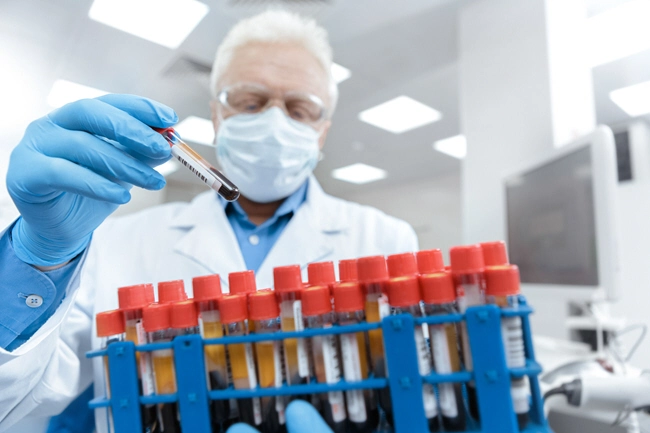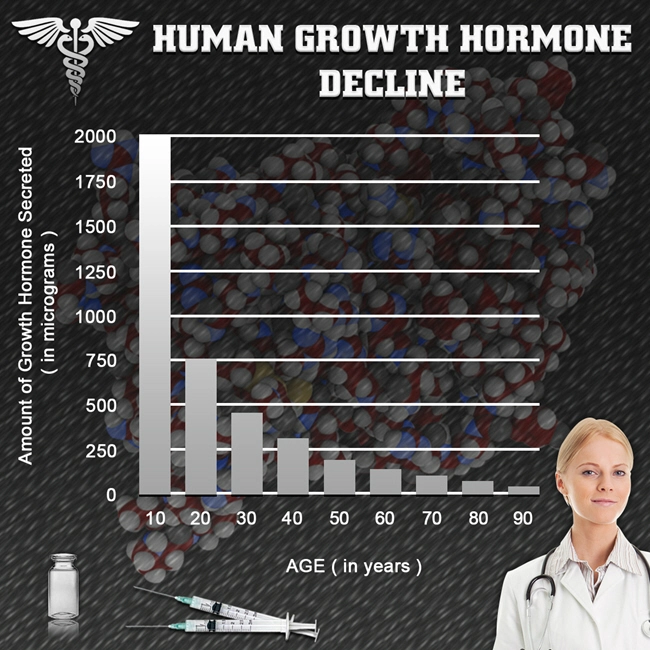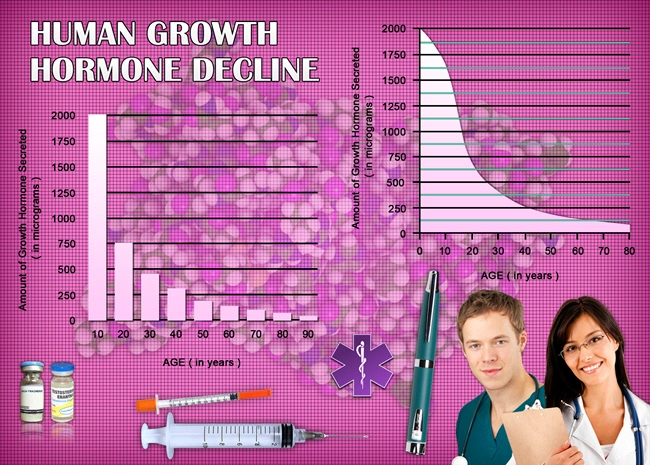
Video Link: https://vimeo.com/288897768
Video Download: Click Here To Download Video
Video Stream: Click Here To Stream Video
An Introduction to Nootropics
The word Nootropics is from the Greek words nous, or "mind," and trepein meaning "to bend/turn."
Nootropics are also referred to as smart drugs, memory 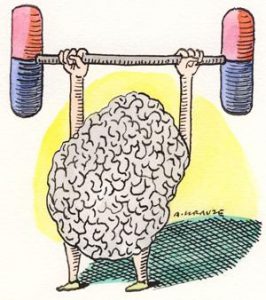 enhancers, neuroenhancers, cognitive enhancers, and intelligence enhancers.
enhancers, neuroenhancers, cognitive enhancers, and intelligence enhancers.
Nootropics are drugs, supplements, nutraceuticals, and certain foods that have shown the potential to improve mental functions such as cognition, memory, intelligence, motivation, attention, and concentration.
The term nootropic was invented in 1972 by Corneliu Giurgea, a Romanian psychologist, and chemist. According to Giurgea, nootropic substances should have the following characteristics:
1. They should enhance learning and memory.
2. They should improve the resistance of learned behaviors/conditions which tend to disrupt them.
3. They should protect the brain against various physical or chemical injuries.
4. They should increase the efficacy of tonic cortical/subcortical control mechanisms.
5. They should lack the general pharmacology of other psychotropic drugs, and possess very few side effects and extremely low toxicity.
Are Nootropics for You?
Perhaps. If you have an interest in any of these areas...
- Increasing your alertness and energy levels.
- Improving your memory.
- Increasing your IQ.
- Develop greater clarity of thought and sensory awareness.
- Fight Alzheimer's disease, and possibly slow the aging process.
- Perform better on the job, in school, or anywhere else where your intelligence is critical.
- Light a fire in your libido.
- Improve your concentration and problem-solving abilities.
And if you would like to know more, then the topic of nootropics is something you investigate. But before you begin, let's take a brief look at how nootropics work, the right way to start, the correct dosage, and potential side effects.
How Nootropics Work
- Increase synaptic receptors and organic molecule production. Many nootropics work by increasing the production of acetylcholine and glutamate in the brain. Acetylcholine is an organic molecule that acts as a neurotransmitter and works directly with the central and peripheral nervous systems. Increasing the production of acetylcholine has been shown to improve our brain's ability to concentrate and make our decisions far more logically. Glutamate is an amino acid that plays a vital role in memory formation.
Increased brain flexibility. Another theory states that nootropics can ease communication at cortical synapses that use glutamate as a neurotransmitter. This promotes plasticity at the synapse, resulting in better cognitive performance. In plain English, this means that the brain's nerve
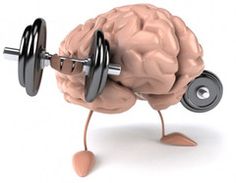 cells can pass electrical or chemical signals to each other, quickly and accurately. Aging slows this process down, and nootropics can help the cells regain their youthfulness.
cells can pass electrical or chemical signals to each other, quickly and accurately. Aging slows this process down, and nootropics can help the cells regain their youthfulness.Protect the brain from toxins. Let's face facts. Our immune systems are under a constant barrage of toxic substances. Bad news: many of these toxins are a direct result of our conscious decisions. Alcohol, drugs, tobacco, and a high-fat, sugar-loaded diet are choices that we make.
Worse news: many of these toxins fly under the radar screen: food additives, pesticides, aluminum in our drinking water, and lead in the air we breathe all take a toll -- on our brains as well as our bodies. Good news: we can take steps immediately to minimize or eliminate the devastating effect of these toxins. Changes in what we eat, air and water filters, stopping smoking, drinking alcohol, and ingesting recreational drugs are a good start. Adding certain nootropics to the mix will bump our protection efforts up to the next level.
Increase blood flow to the brain. The brain needs oxygen, and blood flow delivers this oxygen to the brain. As we age, circulation becomes sluggish. The result is predictable: less blood flow = less oxygen to the brain = lowered cognitive performance. Certain nootropics have been shown to increase this all-important blood flow.
Rebuild Myelin, the white matter that protects the nerves in the brain. Picture myelin as a rubber hose. As it ages, it becomes stiff, cracked, and frayed. Naturally, when this happens, the water flow is nowhere near what we would like. Myelin protects the nerves in our brain, and as with so many things, as we age, the myelin wears out and gradually loses its ability to protect our brain nerves.
The result? The nerves don't communicate as well, leaving you more and more forgetful. But, help is on the way. There are nootropic nutrients that can rebuild worn-out myelin...which stops your mental decline as if it has run into a brick wall!
Stress reduction. It's common knowledge that some pressure is normal. But continual pressure without let-up is a killer. Headaches, digestive problems,
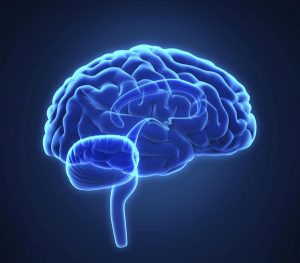 insomnia, high blood pressure, and heart disease can take a terrible toll on the body. Also, stress can also release chemicals -- especially norepinephrine and cortisol -- that negatively affect our ability to think. This is still another area that nootropics can help.
insomnia, high blood pressure, and heart disease can take a terrible toll on the body. Also, stress can also release chemicals -- especially norepinephrine and cortisol -- that negatively affect our ability to think. This is still another area that nootropics can help.Increase production of Aminobutyric Acid (GABA). This miracle substance is an important neurotransmitter that calms us down and allows us to focus and concentrate. As our levels of GABA drop, due to stress and aging, it becomes harder and harder to think coherently. But a nootropic herb has shown for centuries that it can work wonders in soothing our stressed-out minds.
The Right Way to Begin
As with all new actions you take to improve your health, a discussion with your professional healthcare provider is the first step. Continue your research, stay abreast of current developments, and start slowly.
In fact, the best course of action is to add one nootropic at a time. See how you feel, and how you react. It is also a good idea to mention to your friends what you are doing, and solicit honest feedback from them.
The Right Dosage
This is without a doubt a frustrating area of nootropics. To put it simply, various nootropics have different effects on people.
For example, studies show that for any particular compound, the optimum dosage may vary from person to person by as much as twenty times!
Here is another thing to keep in mind. Most nootropics have a bell-shaped dosage.
What this means is that for each substance, there is an optimal dose, and above or below this dose, the effects are not as profound.
Therefore, more is not necessarily better.
There is also the issue of synergy to consider. The definition of synergy is “the whole is greater than the sum of the parts.”
Keep in mind that if you are taking a few different nootropics, you may be able to lower the optimal dose.
It's similar to the amount of coffee or tea consumed during the day: the best way to learn what is right for you is by trial-and-error.
One cup may work for you, while your neighbor may feel comfortable with two or three.
Experiment, and listen to your body's feedback.
When you begin to use a nootropic or a combination of them, look for changes in your alertness, concentration, memory, verbal fluency, organization, and problem-solving ability.
Side Effects
 Although most nootropics are safe and have been shown to be free from adverse side effects, any new substance (by itself, or taken in combination with other elements) has the potential to produce unknown detrimental effects.
Although most nootropics are safe and have been shown to be free from adverse side effects, any new substance (by itself, or taken in combination with other elements) has the potential to produce unknown detrimental effects.
As recommended earlier, always consult with a knowledgeable health-care professional to discuss your plans and get the green light.
Don't go it alone.
By Professor Tom
References
The 14 Best Nootropics and Smart Drugs Reviewed
Contact Us Today For A Free Consultation
Dear Patient,
Once you have completing the above contact form, for security purposes and confirmation, please confirm your information by calling us.
Please call now: 1-800-380-5339.
Welcoming You To Our Clinic, Professor Tom Henderson.

- The Benefits of Centrophenoxine [Last Updated On: April 17th, 2024] [Originally Added On: December 23rd, 2020]
- Take Your Brainpower to the Next Level with Noopept [Last Updated On: April 20th, 2024] [Originally Added On: December 29th, 2020]
- The Calming Benefits of L-Theanine [Last Updated On: April 17th, 2024] [Originally Added On: December 31st, 2020]
- Modafinil: Is it the Real-Life NZT-48? [Last Updated On: April 19th, 2024] [Originally Added On: January 1st, 2021]
- Pregnenolone: The Most Important Hormone You Haven't Heard About [Last Updated On: April 15th, 2024] [Originally Added On: August 23rd, 2021]
- Growth Hormone and Nutrition [Last Updated On: April 18th, 2024] [Originally Added On: October 14th, 2021]
- Growth Hormone and L-Carnitine [Last Updated On: April 23rd, 2024] [Originally Added On: October 14th, 2021]
- Growth Hormone and Piracetam [Last Updated On: June 6th, 2024] [Originally Added On: October 14th, 2021]
- Growth Hormone and DMAE [Last Updated On: April 22nd, 2024] [Originally Added On: October 15th, 2021]
- Growth Hormone, Testosterone, and Aniracetam [Last Updated On: April 21st, 2024] [Originally Added On: October 15th, 2021]
- Growth Hormone and Phosphatidylserine [Last Updated On: April 14th, 2024] [Originally Added On: October 15th, 2021]
